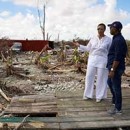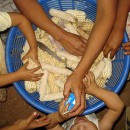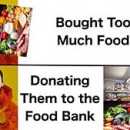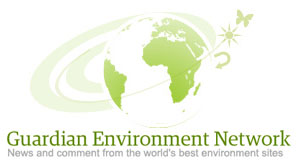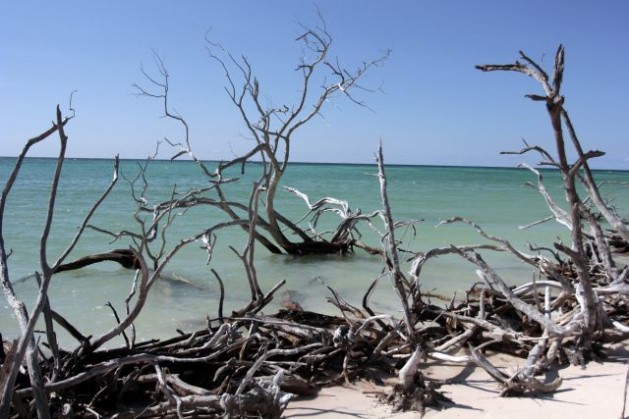Friday, June 9, 2023
News and Views from the Global South
Environment

It’s Time to Ban Cigarette Filters
The second session of the Intergovernmental Negotiating Committee on plastic pollution (INC-2), held in Paris, France, from May 29 to June 02, 2023, concluded with optimism and the prospect of ending plastics pollution. Over 700 delegates from 169 Member States agreed to prepare a zero draft of agreement ahead of the third session in November this year.
We Need to Talk About Deep Blue Carbon
Almost half of the world’s population lives in coastal zones. For islands in the Pacific and Caribbean islands such as Dominica, where up to 90 percent of the population lives on the coast, the ocean is fundamental to lives and livelihoods. From fisheries to tourism and shipping, this essential body which covers over 70 percent of the planet, is a lifeline.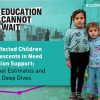
Number of Crisis-Impacted Children in Need of Education Support Rises Significantly: Education Cannot Wait Issues New Global Estimates Study
Armed conflicts, forced displacement, climate change and other crises increased the number of crisis-impacted children in need of urgent quality education to 224 million, according to a new Global Estimates Study issued today by Education Cannot Wait (ECW), the United Nations global fund for education in emergencies and protracted crises.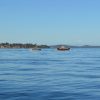
Guess Who Is the Worst Enemy of the Oceans (And Everywhere Else)?
The good news: oceans cover three-quarters of the Earth’s surface, contain 97% of the world’s water, represent 99% of the living space on the Planet by volume, and are a major source of food and medicine. Much so that they are the main source of protein for more than a billion people around the world.
Kenya Moots Disbanding the Loss and Damage Fund, Seeks Fair Equitable Climate Action
The Climate Change envoy to the President of Kenya has asked Kenya’s and, by extension Africa’s negotiators at the ongoing climate conference in Bonn, Germany, not to put much emphasis on financing the Loss and Damage kitty but instead calls for fairness and equity.
The U.S. Assault on Mexico’s Food Sovereignty
On June 2, the U.S. government escalated its conflict with Mexico over that country’s restrictions on genetically modified corn, initiating the formal dispute-resolution process under the U.S.-Mexico-Canada Agreement (USMCA).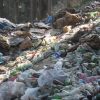
World Environment Day – Solutions for Plastic Pollution
It’s time to get together and celebrate the environment! June 5th is the 50th World Environment Day, where each year, the significance of transformative action from across the world is crucial to help people and the planet. This year’s World Environment Day is being hosted by Côte d'Ivoire in partnership with the Netherlands with a theme of ‘Finding Solutions for Plastic Pollution.
Climate Disasters Have Major Consequences for Informal Economies
In the Pacific Islands and many developing and emerging countries worldwide, the informal economy far outsizes the formal one, playing a vital role in the survival of urban and rural households and absorbing expanding working-age populations.
Rocky Point Fishers Await Sanctuary To Ease Environmental Issues, Low Fish Catch
Long before the COVID-19 Pandemic, fishers at the Rocky Point fishing beach in Clarendon were forced to venture farther out to sea to make a living or find alternatives to make ends meet.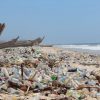
A Global Plastics Treaty Can End the Age of Plastic
Climate-crisis-fuelled storms have hit New Zealand hard this year. In January, we suffered unprecedented extreme weather and flooding, followed by Cyclone Gabrielle in February - the worst storm in 55 years—which triggered a national state of emergency. In total, we had 5.5 times more rain than Auckland summers typically receive.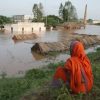
Climate Carnage: Things Can Only Get Worse
Please stop repeating all this softened wording, such as climate change, climate-related hazards, climate crisis, or extreme weather events... And just call it what it really is: climate carnage.
Carbon Tax: A Surprisingly Simple Contribution to Fight Climate Change
Reducing carbon emissions is critical for combating climate change. And one effective way to do this is through the use of carbon taxes.
UN Human Rights Office Remains Under-Funded & Under-Resourced
In December last year, I launched our year-long commemoration of the 75th anniversary of the Universal Declaration of Human Rights. We have since issued a series of initiatives calling on States and all others to make pledges, and to take clear steps to fulfil the promises of the Universal Declaration.
Cooperatives in Argentina Help Drive Expansion of Renewable Energy
When the residents of Armstrong, a town of 15,000 in western Argentina, began to meet to discuss a renewable energy project, they agreed that there could be many positive effects and that it was not just a question of doing their bit in the global effort to mitigate climate change.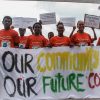
Climate Change Gets Its Day in Court
As a matter of global justice, the climate crisis has rightfully made its way to the world’s highest court. On 29 March 2023, the United Nations General Assembly (UNGA) unanimously adopted a resolution asking the International Court of Justice (ICJ) to issue an advisory opinion on the obligations of states on climate change. The initiative was led by the Pacific Island state of Vanuatu, one of several at risk of disappearing under rising sea levels. It was co-sponsored by 132 states and actively supported by networks of grassroots youth groups from the Pacific and around the world.
The Lead-Free Water Pledge: Steps Towards a Future of Lead-Free Drinking Water
At the UN Water Conference in March 2023, the Water Institute at the University of North Carolina (UNC) along with several key partners, including UNICEF, Water Aid, the World Health Organization, and the governments of Ghana, Uganda, and South Africa, among others, organized a session centered around the elimination of lead in drinking water across the globe.
Governments Are Changing Fisheries Management for the Better, but More Action Is Still Needed
Global fisheries are worth more than US$140 billion each year, according to the Food and Agriculture Organization (FAO) of the United Nations. But this hefty sum does not capture the true value of fish to ocean health, and to the food security and cultures of communities around the world.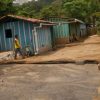
Rainwater Harvesting Brings Hope for Central America’s Dry Corridor – Video
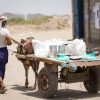
G7 Has Failed the Global South in Hiroshima
"G7 countries have failed the Global South here in Hiroshima. They failed to cancel debts, and they failed to find what is really required to end the huge increase in hunger worldwide. They can find untold billions to fight the war but can’t even provide half of what is needed by the UN for the most critical humanitarian crises."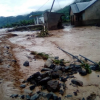
Rwanda: Better Mapping of Erosion Risk Areas Needed More Than Ever
Following severe flooding and landslides that hit major parts of Rwanda earlier this month, experts are convinced that investing in the mapping of erosion risk areas could go a long way to keeping the number of casualties down.
Europe Sells to Africa and Asia 90% of Its Used Clothes, Textiles Waste
Once the money-making businesses have turned Asia and Africa into their low-cost factories, to produce and market at higher prices their clothes and footwear, obtaining more profits by selling to these two continents around 90% of all their used and textiles waste.Next Page »


